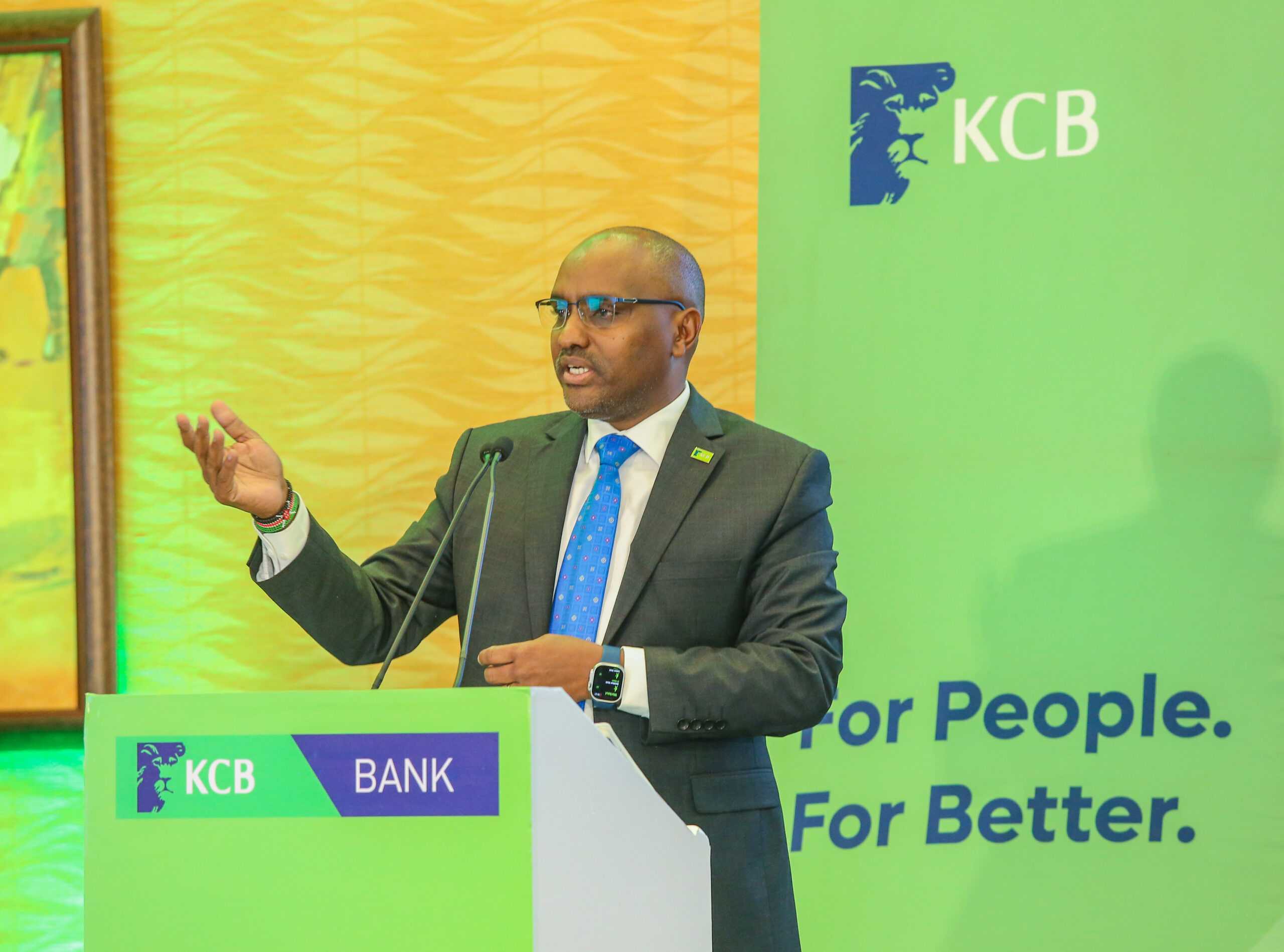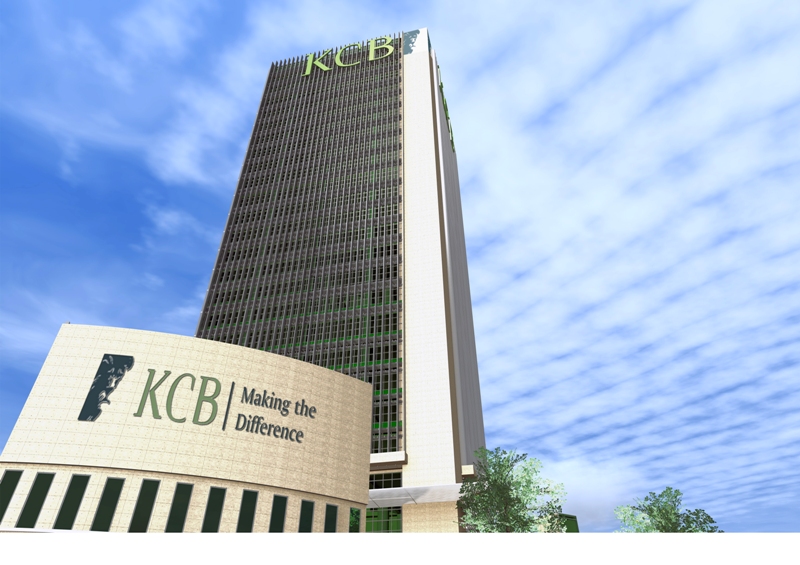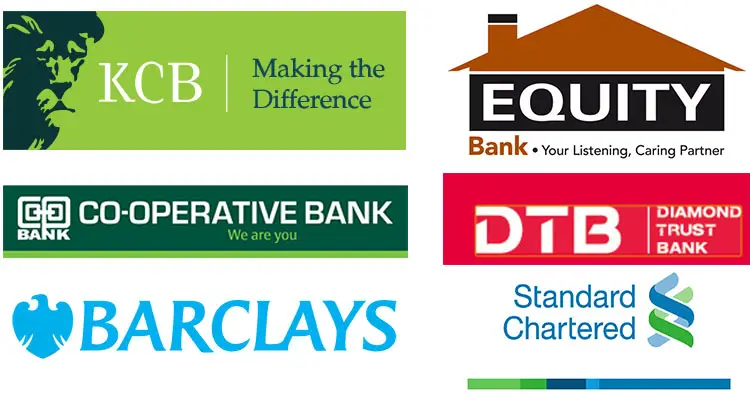Business & Money
KCB Group’s Net Profit Jumps 69% in Q1 2024, Reclaiming Top spot in East Africa.
A key enabler of KCB Bank’s stellar performance was a three-year strategy hinged on digital leadership, prioritizing adherence to market standards and regulatory demands to strengthen operations.

:Driven by Kenya Commercial Bank boosting customer satisfaction and reducing friction by prioritizing automation, expanding self-serve channels, and streamlining loan applications.
KCB Group PLC’s net profit soared 69% to KShs. 16.5 billion in Q1 2024 from KShs. 9.8 billion, reclaiming its title as East Africa’s most profitable bank and solidifying its status as the largest lender by assets.
The Kenyan lender achieved this historic quarterly milestone with significant revenue growth across its network, closing Q1 2024 with a balance sheet of KShs. 2.0 trillion, up from KShs. 1.6 trillion the previous year.
The total revenues increased by 31.6% to KShs. 48.5 billion, mainly due to growth in both funded and non-funded income. Non-funded income, which accounted for 36% of total revenues, was boosted by higher transaction volumes, increased customer confidence, and the adoption of digital banking and alternative channels.
CEO Paul Russo stated, “Despite challenging conditions across the region, we achieved strong revenue performance by maintaining prudent credit, liquidity, cost, and risk management. Consumer deposits continued to grow, reflecting client confidence in our brand. Our investments in digital and payment capabilities, along with our regional expansion strategy, delivered impressive results.”
A key enabler of KCB Bank’s stellar performance was a three-year strategy hinged on digital leadership, prioritizing adherence to market standards and regulatory demands to strengthen operations.
In April, Business Daily reported that the bank plans to hire 400 new workers across its regional operations, in line with the group’s investment in “digital leadership.
The latest Kenya Bankers Association customer satisfaction survey reveals that 45.7% of customers prefer fully automated or self-service platforms, including mobile, internet, and chatbots, for their banking services.
He added, “We leveraged group capabilities through facility syndication and centres of excellence to enhance operational efficiency. Our shared services model prioritized automation, expanding self-serve channels, and streamlining loan applications, boosting customer satisfaction and reducing friction. Looking ahead, we are optimistic about our prospects in all markets. We aim to leverage our strong relationships and brand to drive growth, guided by our 2024-2026 strategy: Transforming Today Together.”
KCB Group also operates in the Democratic Republic of Congo (CBK), Tanzania, Rwanda, South Sudan, Uganda, and Burundi.
In anticipation of Ethiopia’s financial services liberalization, KCB is eyeing potential acquisitions and conducting due diligence on two banks, revealed CEO Paul Russo at the Africa CEO Forum held in Kigali, Rwanda, on May 16-17.
Net interest income surged to 31.06 billion shillings from 22.06 billion shillings. Gross loans grew by 12.2% to 1.13 trillion shillings, with loan-loss provisions rising to 6.3 billion shillings from 4.12 billion shillings due to downgrades in Kenya and the impact of foreign currency translation. Total assets increased to 2 trillion shillings from 1.63 trillion shillings year-over-year. In March, KCB agreed to sell its Kenyan unit, National Bank, to Nigeria’s Access Group.
Net interest income surged to 31.06 billion shillings from 22.06 billion shillings. Gross loans grew by 12.2% to 1.13 trillion shillings, with loan-loss provisions rising to 6.3 billion shillings from 4.12 billion shillings due to downgrades in Kenya and the impact of foreign currency translation. Total assets increased to 2 trillion shillings from 1.63 trillion shillings year-over-year. In March, KCB agreed to sell its Kenyan unit, the National Bank, to Nigeria’s Access Group.
Keywords:KCB Group profit growth:Digital banking adoption:East Africa’s largest lender:KCB regional expansion:Net interest income surge
Business & Money
KCB Group Surpasses Equity with US$ 342.31 Million Nine-Month Profit

: KCB Group reports Sh44.5B ( US$ 342.31) nine-month profit, outpacing
Equity Bank. Learn about its 49% growth, challenges, and stock performance this
year.
KCB Group Plc has outperformed Equity Bank to cement its position as Kenya’s leading
lender, posting a net profit of Sh44.5 billion for the nine months ending September
This represents a 49% year-on-year growth, surpassing Equity Bank’s Sh37.5
billion profit during the same period.
Profit Growth Driven by Core Business Performance
The remarkable profit growth was fueled by higher earnings from both interest and non-
interest income streams. KCB’s diverse revenue base has been pivotal in maintaining
its dominance in the competitive banking sector.
Non-Performing Loans a Key Concern
Despite the impressive profit growth, KCB’s non-performing loan (NPL) ratio rose to
18.5%, compared to 16.5% last year. This increase highlights persistent challenges in
managing credit risk, with Chief Financial Officer Lawrence Kimathi acknowledging it as
a “pain point” for the bank.
KCB Stock Outshines Peers on NSE
KCB’s strong financial performance has translated into exceptional stock market results.
The bank’s stock has risen 78.8% year-to-date, making it the best-performing banking
stock on the Nairobi Securities Exchange (NSE).
Plans to Sell National Bank of Kenya
Earlier this year, KCB announced plans to sell its struggling subsidiary, National Bank of
Kenya (NBK), to Nigeria’s Access Bank. While Nigerian regulators have approved the
deal, it is still awaiting clearance from Kenya’s Central Bank. The sale aims to
streamline KCB’s operations and address losses at NBK.
CEO Paul Russo Optimistic About Year-End Performance
“The journey has not been without its hurdles, but our ability to walk alongside our
customers has driven our success,” said KCB CEO Paul Russo. He expressed
confidence in closing the year on a high note, leveraging improving economic conditions
across the region.
Key Figures at a Glance
● Net Profit: Sh44.5 billion (+49%)
● Non-Performing Loan Ratio: 18.5% (up from 16.5%)
● Stock Performance: +78.8% year-to-date
KCB’s strong performance underscores its resilience in navigating challenges and its
commitment to sustaining growth in Kenya’s banking sector.
Business & Money
Top 10 Kenyan banks by total assets as of 2023, based on data from the Central Bank of Kenya:

KCB Bank Kenya Limited
Total Assets: KSh 1.425 trillion
Market Share: 17.4%
Equity Bank Kenya Limited
Total Assets: KSh 1.004 trillion
Market Share: 12.2%
NCBA Bank Kenya PLC
Total Assets: KSh 661.7 billion
Market Share: 9.2%
Co-operative Bank of Kenya
Total Assets: KSh 624.3 billion
Market Share: 8.8%
Absa Bank Kenya PLC
Total Assets: KSh 520.3 billion
Market Share: 6.6%
Standard Chartered Bank Kenya
Total Assets: KSh 429.3 billion
Market Share: 5.9%
Stanbic Bank Kenya
Total Assets: KSh 449.6 billion
Market Share: 5.8%
I&M Bank Limited
Total Assets: KSh 405.6 billion
Market Share: 5.4%
Diamond Trust Bank Kenya
Total Assets: KSh 399.6 billion
Market Share: 5.3%
Bank of Baroda (Kenya) Limited
Total Assets: KSh 201.9 billion
Market Share: 2.8%
These rankings illustrate the dominance of large Tier 1 banks, which collectively control over
76% of the market share. Strategic expansions, increased deposit mobilisation, and robust
lending practices underpin the sector’s strong performance
Business & Money
Vasundhara Oswal’s Legal Struggles and Family’s Plea for Justice

: Vasundhara Oswal, daughter of industrialist Pankaj Oswal, faces serious
charges in Uganda. The Oswals call for UN intervention amid claims of corporate
jealousy.
Vasundhara Oswal, the 26-year-old daughter of prominent Swiss-Indian industrialist
Pankaj Oswal, has found herself at the centre of a legal storm in Uganda.
Her father, a well-established business figure, is known for his diverse investments,
most notably a $150 million ethanol plant in Uganda.
This plant, the largest of its kind in East Africa, is a key part of Oswal’s broader strategy
to invest in industrial and eco-friendly solutions in the region. The facility produces extra-neutral alcohol (ENA), which is used in the beverage, cosmetics, and pharmaceutical industries.
It is recognised for its modern technology and sustainable practices, such as zero liquid
discharge, emphasising the Oswal family’s commitment to both industrial growth and
environmental responsibility.
In addition to the ethanol plant, Pankaj Oswal has made strategic investments across
various industries, including petrochemicals, agriculture, and real estate.
His ventures reflect a global reach, extending to Australia and India, where he has
been involved in industries ranging from agriculture to renewable energy.
His diversified business approach and commitment to sustainability have made him a prominent figure in international business. However, in October 2024, the family’s legacy was overshadowed by the legal troubles surrounding Vasundhara Oswal.
She was detained on October 1, 2024, after being accused of involvement in the
alleged murder of Mukesh Menaria, a former employee who had worked with the
Oswals since 2017.
Menaria had accused the family of harassment but later testified under oath that they
had not harmed him Despite this, charges of kidnapping and murder were brought against Vasundhara.
Her family has strongly denied these allegations, claiming that the charges are
politically motivated and part of a larger conspiracy orchestrated by their business rivals
in collaboration with corrupt officials in Uganda.
The Oswals have appealed to the United Nations, seeking intervention and asserting
that the legal proceedings against Vasundhara are unlawful. Vasundhara has actively managed the family business throughout her career, especially the ethanol plant, and led the company’s sustainable initiatives.
Beyond her business involvement, she has also been an advocate for community
welfare and mental health, further cementing the Oswal family’s reputation for corporate
social responsibility.
The unfolding legal drama has raised important questions about the intersection of
business, politics, and the legal systems in Uganda.
While the Oswal family’s ventures reflect a blend of industrial innovation and social
responsibility, the legal challenges Vasundhara faces have cast a shadow over their
business empire, highlighting the complex dynamics at play in East Africa.
-

 Business & Money8 months ago
Business & Money8 months agoEquity Group Announces Kshs 15.1 Billion Dividend Amid Strong Performance
-

 Politics3 months ago
Politics3 months agoFred Okengo Matiang’i vs. President William Ruto: A 2027 Election Showdown
-

 Politics2 months ago
Politics2 months agoIchung’wah Faces Mt. Kenya Backlash Over Gachagua Impeachment Support
-

 Politics4 months ago
Politics4 months agoPresident Ruto’s Bold Cabinet Dismissal Sparks Hope for Change
-

 Politics5 months ago
Politics5 months agoKenya Grapples with Investor Confidence Crisis Amid Tax Protest Fallout
-

 Politics5 months ago
Politics5 months agoPresident Ruto’s Lavish Spending Amid Kenya’s Economic Struggles Sparks Outrage
-

 Politics4 months ago
Politics4 months agoJohn Mbadi Takes Over Kenya’s Treasury: Challenges Ahead
-

 Business & Money1 week ago
Business & Money1 week agoMeet Kariuki Ngari: Standard Chartered Bank’s new CEO of Africa. What’s Next?





